External Development's Crucial Role in Gaming: Insights from Keywords CEO | The DeanBeat
The Evolution of the Game Industry: A Decade of Change
Over the past decade, the game industry has undergone a significant transformation. One of the most notable shifts has been the rise of external development, or what was once simply called outsourcing. This new layer of the industry has become crucial, and at the forefront of this sector is Keywords, a company with 13,000 game developers spread across numerous studios worldwide. Since Bertrand Bodson took the helm as CEO in 2021, amidst the chaos of the global pandemic, Keywords has navigated through challenging times, including downturns and layoffs that have affected the gaming sector over the past 2.5 years. Despite these hurdles, Bodson emphasizes that there hasn’t been a "normal" year since he joined.
Bodson sees external development companies like Keywords as a buffer for game creators, allowing them to run ambitious studios with as few as 50 people. This flexibility means studios can scale their workforce up or down as needed, using Keywords' teams from the outset of a project in a process known as co-development. This approach helps studios avoid mass layoffs when projects wind down; instead, Keywords can shift developers to new, emerging projects. This structural change, Bodson believes, could make the industry's ups and downs more manageable for everyone involved.
The State of Gaming in 2025
With a broad perspective on the industry, Bodson shared his insights on the state of gaming in 2025. Keywords works with most of the top 25 game companies, and Bodson notes a significant shift towards quality and long-term trusted partnerships. For instance, Keywords has multiple studios dedicated solely to content creation for Fortnite. Additionally, a remarkable 86% of the winners at The Game Awards last December had some involvement from Keywords.
Bodson acknowledges that change in the industry won't be instantaneous but predicts it will happen at varying speeds. He remains optimistic, highlighting the "green shoots" of growth that could replace the recent "doom and gloom." However, he warns that 2025 might still be a challenging year, with a more visible recovery expected in 2026.
Interview with Bertrand Bodson
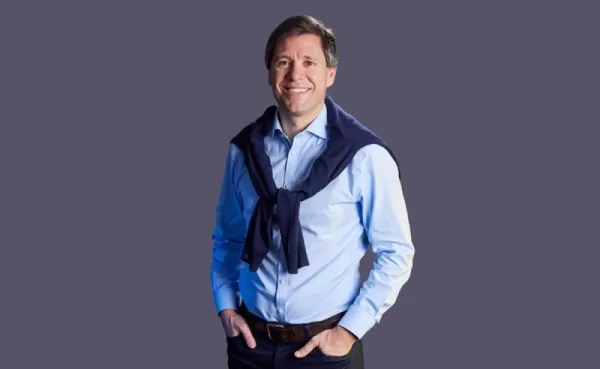
GamesBeat: Where do you stand in terms of number of employees and studios now?
Bertrand Bodson: We're a global team of about 13,000 people across 26 countries. Our create division includes around 25 studios, focusing on co-development, design, and art. This division alone has about 5,000 professionals. We also have globalize and engage divisions, each with roughly 5,000 and 2,500 to 3,000 people, respectively. Globalize handles testing and localization, while engage covers everything from trailers to influencer marketing.
GamesBeat: Does that give you something close to 70 studios still, or is it more than that now?
Bodson: We've streamlined our operations quite a bit. Globalize operates under one brand, Keywords, covering about 30 languages across different locations. Engage has roughly 10 studios, plus player support. So, it's fewer than the 70 studios you might have heard about, but we've brought a lot of our services under unified divisions.
GamesBeat: What was it like when you first joined and were getting started in 2021?
Bodson: Joining Keywords was a thrilling experience. The company's culture of collegiality and entrepreneurship was a big draw for me. Despite our size, the company feels approachable and interconnected. When I started, we had nine service lines, which was a bit confusing for our clients. We reorganized into create, globalize, and engage to better align with our clients' needs. Our passion for games is palpable across all our studios, and I'm focused on fostering a platform where our studios can thrive and collaborate.

GamesBeat: The timing when you joined was interesting. It feels like you've never really had a normal environment. How do you deal with that sort of environment, one that's not so predictable?
Bodson: When I joined, we were in the midst of a surge, and it was challenging but also an opportunity. Despite the market's difficulties, we're seeing more green shoots. At GDC, we noticed a stronger intent from developers looking for future content. The industry has reimagined how games are made, allowing publishers to keep core creative teams small while leveraging trusted partners for larger projects.
GamesBeat: How is that structural change in the game industry making things different? Can you talk about how big a change that is and what it means?
Bodson: This shift is fundamental and won't happen overnight. The industry's recent challenges have forced many to rethink their business models, balancing fixed and variable costs, and identifying what's core to their operations. There's also a massive move towards quality and long-term trusted partnerships. Many publishers are looking for reliable partners to help navigate these changes.
GamesBeat: It sounds like trust is crucial between external development companies and core game companies. How do you manage that, especially with the risk of leaks?
Bodson: Trust is indeed key. Our studios have built strong reputations and relationships over the years. For example, several of our studios have been working with Fortnite since 2017. We also invest in robust systems to ensure information security and cybersecurity. Our goal is to provide a seamless experience for our partners, whether they need specific co-development services or more comprehensive support.
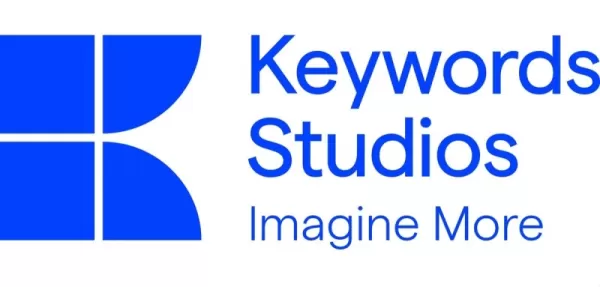
GamesBeat: How does it work to have a flexible workforce, where you can flex up and flex down based on where a project is that you’re working on for a customer? How do you try to reconcile that with the opposite, which is a cohesive team that likes working together and does well as a studio unto itself?
Bodson: In globalize, it's easier to manage workforce flexibility due to the nature of testing and localization. We have a global pool of talent that can scale up or down as needed. For co-development in the create division, it's more challenging, but our scale allows us to absorb cancellations and redirect resources. We plan ahead and help our studios support each other, maintaining a strong culture and leveraging our entrepreneurial spirit.
GamesBeat: What are some of the trends you see, given that you have such a window on the entire industry?
Bodson: There are several key trends. User-generated content, mobile mini-games, and the shift from fixed to variable costs are at the forefront. Newcomers like Mattel, Hasbro, Lego, and Disney are entering the space, looking to leverage their IP without building massive studios. There's also growth in bridging the gap between Eastern and Western markets, with companies like GCL and Savvy making significant moves.
GamesBeat: How does that come back to influence Keywords’ own individual strategy, your company strategy?
Bodson: Our strategy focuses on five areas: how we go to market, improving our operating model, scaling with investments from EQT, exploring adjacencies like virtual production, and M&A. We're also heavily investing in technology, including AI solutions like Project KARA, to enhance our post-production workflows.
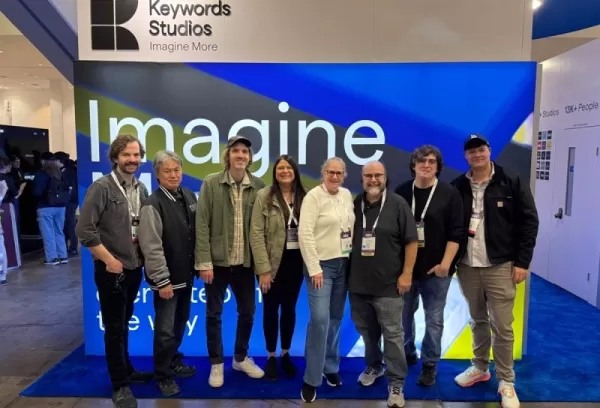
GamesBeat: On this strategy for individuals, is external development more like the ground floor for how people can break into the industry? How do you view the opportunities that young people should focus on as they’re trying to break in?
Bodson: We offer various entry points into the industry, including academies in key regions. Many of our talents start with us and either stay or move on to other roles in the industry. We also attract seasoned professionals who value the variety and autonomy our work offers. At last year's Game Awards, 86% of the winners had Keywords' involvement, showcasing the breadth of exposure our employees get.

GamesBeat: One thing I’ve been talking a lot about lately, after talking to a lot of people in the industry—a healthy game industry is going to have a few different components. Revenue growth, getting back to the growth that it saw for more than a decade. But the other components are—finding and accepting new technology. This could be AI, or this could be other things. And then creating job growth. Doing that all at the same time seems like a challenge for the industry. I don’t know if we’ll be able to do it, but that seems like the ideal way for the industry to grow. If we grow revenues, but jobs disappear because AI has eliminated them, that’s not a great scenario. I wonder if you think this is an ideal goal, or if it’s even possible.
Bodson: I'm optimistic about AI's role in the industry. We're using it to enhance creativity and efficiency, not just to cut costs. We've been experimenting with AI in projects like Project KARA, learning where it adds value and where it doesn't. Our goal is to be three steps ahead, helping the industry navigate this new technology responsibly. I believe AI can lead to better games and more creativity, not fewer jobs.

GamesBeat: For your stakeholders, have you signaled much of what you think about what 2025 is going to look like?
Bodson: I believe 2025 will still be a challenging year for many of our clients. However, our role is to help them navigate these challenges. I'm optimistic that 2026 could be a year of significant growth and recovery for the industry.
Related article
 Master Emerald Kaizo Nuzlocke: Ultimate Survival & Strategy Guide
Emerald Kaizo stands as one of the most formidable Pokémon ROM hacks ever conceived. While attempting a Nuzlocke run exponentially increases the challenge, victory remains achievable through meticulous planning and strategic execution. This definitiv
Master Emerald Kaizo Nuzlocke: Ultimate Survival & Strategy Guide
Emerald Kaizo stands as one of the most formidable Pokémon ROM hacks ever conceived. While attempting a Nuzlocke run exponentially increases the challenge, victory remains achievable through meticulous planning and strategic execution. This definitiv
 AI-Powered Cover Letters: Expert Guide for Journal Submissions
In today's competitive academic publishing environment, crafting an effective cover letter can make the crucial difference in your manuscript's acceptance. Discover how AI-powered tools like ChatGPT can streamline this essential task, helping you cre
AI-Powered Cover Letters: Expert Guide for Journal Submissions
In today's competitive academic publishing environment, crafting an effective cover letter can make the crucial difference in your manuscript's acceptance. Discover how AI-powered tools like ChatGPT can streamline this essential task, helping you cre
 US to Sanction Foreign Officials Over Social Media Regulations
US Takes Stand Against Global Digital Content Regulations
The State Department issued a sharp diplomatic rebuke this week targeting European digital governance policies, signaling escalating tensions over control of online platforms. Secretary Marco
Comments (35)
0/200
US to Sanction Foreign Officials Over Social Media Regulations
US Takes Stand Against Global Digital Content Regulations
The State Department issued a sharp diplomatic rebuke this week targeting European digital governance policies, signaling escalating tensions over control of online platforms. Secretary Marco
Comments (35)
0/200
![CharlesYoung]() CharlesYoung
CharlesYoung
 April 25, 2025 at 12:17:21 AM EDT
April 25, 2025 at 12:17:21 AM EDT
¡El cambio de la industria de los juegos hacia el desarrollo externo es una locura! Es increíble cómo ha cambiado en solo una década. Entiendo que ayuda, pero a veces siento que el alma del juego se pierde en el barullo del outsourcing. Aun así, hay que apreciar la eficiencia! 🎮


 0
0
![LeviKing]() LeviKing
LeviKing
 April 24, 2025 at 12:32:26 AM EDT
April 24, 2025 at 12:32:26 AM EDT
게임 산업의 변화를 정말 잘 알 수 있었어요! 외부 개발이 얼마나 중요한지 알게 되었고, CEO의 통찰이 정말 흥미로웠어요. 다만, 미래 트렌드에 대해 더 알고 싶었어요. 그래도 게임을 좋아하는 사람이라면 꼭 봐야 할 내용입니다! 🤓🎮


 0
0
![RoyMartínez]() RoyMartínez
RoyMartínez
 April 23, 2025 at 3:12:22 PM EDT
April 23, 2025 at 3:12:22 PM EDT
Der Wandel der Spieleindustrie zum externen Entwickeln ist verrückt! Es ist unglaublich, wie viel sich in nur einem Jahrzehnt verändert hat. Ich verstehe, dass es hilft, aber manchmal fühlt es sich so an, als ob die Seele des Spiels im Outsourcing-Wirrwarr verloren geht. Trotzdem muss man die Effizienz schätzen! 🎮


 0
0
![RogerLopez]() RogerLopez
RogerLopez
 April 23, 2025 at 12:04:55 AM EDT
April 23, 2025 at 12:04:55 AM EDT
This app really opened my eyes to how much the gaming industry has changed! External development is a big deal now, and it's cool to see how it's shaped the industry. The insights from the CEO were super interesting, but I wish there was more on the future trends. Still, a must-watch for any gaming enthusiast! 🤓🎮


 0
0
![JohnNelson]() JohnNelson
JohnNelson
 April 22, 2025 at 8:45:56 PM EDT
April 22, 2025 at 8:45:56 PM EDT
The game industry's shift to external development is wild! It's crazy how much it's changed in just a decade. I get that it helps, but sometimes it feels like the soul of the game gets lost in the outsourcing shuffle. Still, gotta appreciate the efficiency! 🎮


 0
0
![EricJohnson]() EricJohnson
EricJohnson
 April 21, 2025 at 8:37:26 PM EDT
April 21, 2025 at 8:37:26 PM EDT
ゲーム業界の進化についての洞察が得られて面白かったです。外部開発が重要になってきたことを知ることができました。ただ、業界用語が多くて少し難しかったですが、ゲーム好きには必見ですね!🎮📖


 0
0
The Evolution of the Game Industry: A Decade of Change
Over the past decade, the game industry has undergone a significant transformation. One of the most notable shifts has been the rise of external development, or what was once simply called outsourcing. This new layer of the industry has become crucial, and at the forefront of this sector is Keywords, a company with 13,000 game developers spread across numerous studios worldwide. Since Bertrand Bodson took the helm as CEO in 2021, amidst the chaos of the global pandemic, Keywords has navigated through challenging times, including downturns and layoffs that have affected the gaming sector over the past 2.5 years. Despite these hurdles, Bodson emphasizes that there hasn’t been a "normal" year since he joined.
Bodson sees external development companies like Keywords as a buffer for game creators, allowing them to run ambitious studios with as few as 50 people. This flexibility means studios can scale their workforce up or down as needed, using Keywords' teams from the outset of a project in a process known as co-development. This approach helps studios avoid mass layoffs when projects wind down; instead, Keywords can shift developers to new, emerging projects. This structural change, Bodson believes, could make the industry's ups and downs more manageable for everyone involved.
The State of Gaming in 2025
With a broad perspective on the industry, Bodson shared his insights on the state of gaming in 2025. Keywords works with most of the top 25 game companies, and Bodson notes a significant shift towards quality and long-term trusted partnerships. For instance, Keywords has multiple studios dedicated solely to content creation for Fortnite. Additionally, a remarkable 86% of the winners at The Game Awards last December had some involvement from Keywords.
Bodson acknowledges that change in the industry won't be instantaneous but predicts it will happen at varying speeds. He remains optimistic, highlighting the "green shoots" of growth that could replace the recent "doom and gloom." However, he warns that 2025 might still be a challenging year, with a more visible recovery expected in 2026.
Interview with Bertrand Bodson

GamesBeat: Where do you stand in terms of number of employees and studios now?
Bertrand Bodson: We're a global team of about 13,000 people across 26 countries. Our create division includes around 25 studios, focusing on co-development, design, and art. This division alone has about 5,000 professionals. We also have globalize and engage divisions, each with roughly 5,000 and 2,500 to 3,000 people, respectively. Globalize handles testing and localization, while engage covers everything from trailers to influencer marketing.
GamesBeat: Does that give you something close to 70 studios still, or is it more than that now?
Bodson: We've streamlined our operations quite a bit. Globalize operates under one brand, Keywords, covering about 30 languages across different locations. Engage has roughly 10 studios, plus player support. So, it's fewer than the 70 studios you might have heard about, but we've brought a lot of our services under unified divisions.
GamesBeat: What was it like when you first joined and were getting started in 2021?
Bodson: Joining Keywords was a thrilling experience. The company's culture of collegiality and entrepreneurship was a big draw for me. Despite our size, the company feels approachable and interconnected. When I started, we had nine service lines, which was a bit confusing for our clients. We reorganized into create, globalize, and engage to better align with our clients' needs. Our passion for games is palpable across all our studios, and I'm focused on fostering a platform where our studios can thrive and collaborate.

GamesBeat: The timing when you joined was interesting. It feels like you've never really had a normal environment. How do you deal with that sort of environment, one that's not so predictable?
Bodson: When I joined, we were in the midst of a surge, and it was challenging but also an opportunity. Despite the market's difficulties, we're seeing more green shoots. At GDC, we noticed a stronger intent from developers looking for future content. The industry has reimagined how games are made, allowing publishers to keep core creative teams small while leveraging trusted partners for larger projects.
GamesBeat: How is that structural change in the game industry making things different? Can you talk about how big a change that is and what it means?
Bodson: This shift is fundamental and won't happen overnight. The industry's recent challenges have forced many to rethink their business models, balancing fixed and variable costs, and identifying what's core to their operations. There's also a massive move towards quality and long-term trusted partnerships. Many publishers are looking for reliable partners to help navigate these changes.
GamesBeat: It sounds like trust is crucial between external development companies and core game companies. How do you manage that, especially with the risk of leaks?
Bodson: Trust is indeed key. Our studios have built strong reputations and relationships over the years. For example, several of our studios have been working with Fortnite since 2017. We also invest in robust systems to ensure information security and cybersecurity. Our goal is to provide a seamless experience for our partners, whether they need specific co-development services or more comprehensive support.

GamesBeat: How does it work to have a flexible workforce, where you can flex up and flex down based on where a project is that you’re working on for a customer? How do you try to reconcile that with the opposite, which is a cohesive team that likes working together and does well as a studio unto itself?
Bodson: In globalize, it's easier to manage workforce flexibility due to the nature of testing and localization. We have a global pool of talent that can scale up or down as needed. For co-development in the create division, it's more challenging, but our scale allows us to absorb cancellations and redirect resources. We plan ahead and help our studios support each other, maintaining a strong culture and leveraging our entrepreneurial spirit.
GamesBeat: What are some of the trends you see, given that you have such a window on the entire industry?
Bodson: There are several key trends. User-generated content, mobile mini-games, and the shift from fixed to variable costs are at the forefront. Newcomers like Mattel, Hasbro, Lego, and Disney are entering the space, looking to leverage their IP without building massive studios. There's also growth in bridging the gap between Eastern and Western markets, with companies like GCL and Savvy making significant moves.
GamesBeat: How does that come back to influence Keywords’ own individual strategy, your company strategy?
Bodson: Our strategy focuses on five areas: how we go to market, improving our operating model, scaling with investments from EQT, exploring adjacencies like virtual production, and M&A. We're also heavily investing in technology, including AI solutions like Project KARA, to enhance our post-production workflows.

GamesBeat: On this strategy for individuals, is external development more like the ground floor for how people can break into the industry? How do you view the opportunities that young people should focus on as they’re trying to break in?
Bodson: We offer various entry points into the industry, including academies in key regions. Many of our talents start with us and either stay or move on to other roles in the industry. We also attract seasoned professionals who value the variety and autonomy our work offers. At last year's Game Awards, 86% of the winners had Keywords' involvement, showcasing the breadth of exposure our employees get.

GamesBeat: One thing I’ve been talking a lot about lately, after talking to a lot of people in the industry—a healthy game industry is going to have a few different components. Revenue growth, getting back to the growth that it saw for more than a decade. But the other components are—finding and accepting new technology. This could be AI, or this could be other things. And then creating job growth. Doing that all at the same time seems like a challenge for the industry. I don’t know if we’ll be able to do it, but that seems like the ideal way for the industry to grow. If we grow revenues, but jobs disappear because AI has eliminated them, that’s not a great scenario. I wonder if you think this is an ideal goal, or if it’s even possible.
Bodson: I'm optimistic about AI's role in the industry. We're using it to enhance creativity and efficiency, not just to cut costs. We've been experimenting with AI in projects like Project KARA, learning where it adds value and where it doesn't. Our goal is to be three steps ahead, helping the industry navigate this new technology responsibly. I believe AI can lead to better games and more creativity, not fewer jobs.

GamesBeat: For your stakeholders, have you signaled much of what you think about what 2025 is going to look like?
Bodson: I believe 2025 will still be a challenging year for many of our clients. However, our role is to help them navigate these challenges. I'm optimistic that 2026 could be a year of significant growth and recovery for the industry.
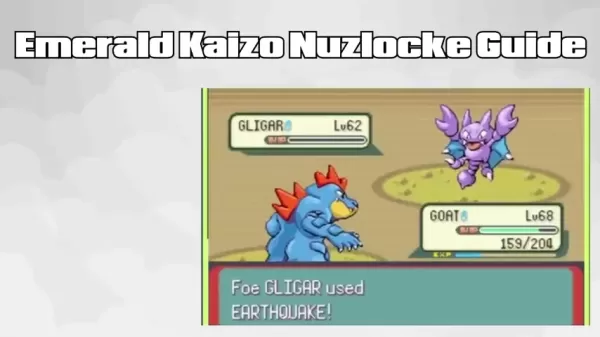 Master Emerald Kaizo Nuzlocke: Ultimate Survival & Strategy Guide
Emerald Kaizo stands as one of the most formidable Pokémon ROM hacks ever conceived. While attempting a Nuzlocke run exponentially increases the challenge, victory remains achievable through meticulous planning and strategic execution. This definitiv
Master Emerald Kaizo Nuzlocke: Ultimate Survival & Strategy Guide
Emerald Kaizo stands as one of the most formidable Pokémon ROM hacks ever conceived. While attempting a Nuzlocke run exponentially increases the challenge, victory remains achievable through meticulous planning and strategic execution. This definitiv
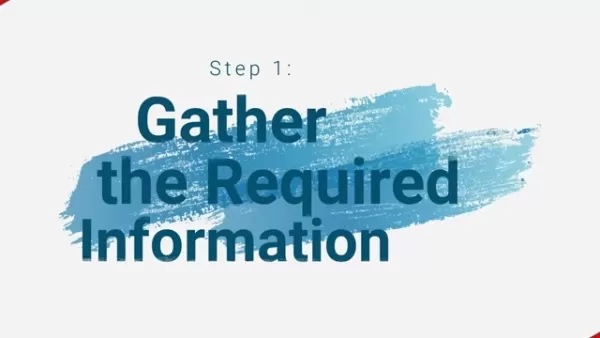 AI-Powered Cover Letters: Expert Guide for Journal Submissions
In today's competitive academic publishing environment, crafting an effective cover letter can make the crucial difference in your manuscript's acceptance. Discover how AI-powered tools like ChatGPT can streamline this essential task, helping you cre
AI-Powered Cover Letters: Expert Guide for Journal Submissions
In today's competitive academic publishing environment, crafting an effective cover letter can make the crucial difference in your manuscript's acceptance. Discover how AI-powered tools like ChatGPT can streamline this essential task, helping you cre
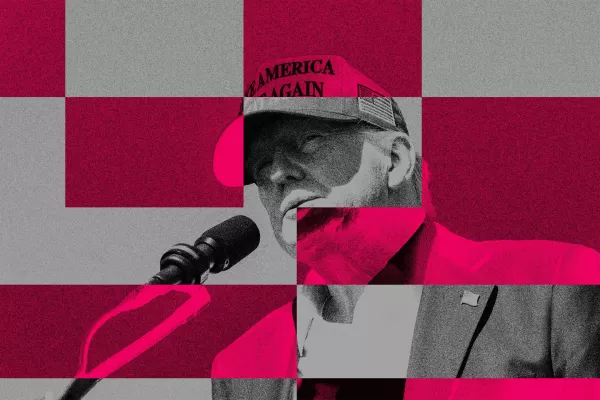 US to Sanction Foreign Officials Over Social Media Regulations
US Takes Stand Against Global Digital Content Regulations
The State Department issued a sharp diplomatic rebuke this week targeting European digital governance policies, signaling escalating tensions over control of online platforms. Secretary Marco
US to Sanction Foreign Officials Over Social Media Regulations
US Takes Stand Against Global Digital Content Regulations
The State Department issued a sharp diplomatic rebuke this week targeting European digital governance policies, signaling escalating tensions over control of online platforms. Secretary Marco
 April 25, 2025 at 12:17:21 AM EDT
April 25, 2025 at 12:17:21 AM EDT
¡El cambio de la industria de los juegos hacia el desarrollo externo es una locura! Es increíble cómo ha cambiado en solo una década. Entiendo que ayuda, pero a veces siento que el alma del juego se pierde en el barullo del outsourcing. Aun así, hay que apreciar la eficiencia! 🎮


 0
0
 April 24, 2025 at 12:32:26 AM EDT
April 24, 2025 at 12:32:26 AM EDT
게임 산업의 변화를 정말 잘 알 수 있었어요! 외부 개발이 얼마나 중요한지 알게 되었고, CEO의 통찰이 정말 흥미로웠어요. 다만, 미래 트렌드에 대해 더 알고 싶었어요. 그래도 게임을 좋아하는 사람이라면 꼭 봐야 할 내용입니다! 🤓🎮


 0
0
 April 23, 2025 at 3:12:22 PM EDT
April 23, 2025 at 3:12:22 PM EDT
Der Wandel der Spieleindustrie zum externen Entwickeln ist verrückt! Es ist unglaublich, wie viel sich in nur einem Jahrzehnt verändert hat. Ich verstehe, dass es hilft, aber manchmal fühlt es sich so an, als ob die Seele des Spiels im Outsourcing-Wirrwarr verloren geht. Trotzdem muss man die Effizienz schätzen! 🎮


 0
0
 April 23, 2025 at 12:04:55 AM EDT
April 23, 2025 at 12:04:55 AM EDT
This app really opened my eyes to how much the gaming industry has changed! External development is a big deal now, and it's cool to see how it's shaped the industry. The insights from the CEO were super interesting, but I wish there was more on the future trends. Still, a must-watch for any gaming enthusiast! 🤓🎮


 0
0
 April 22, 2025 at 8:45:56 PM EDT
April 22, 2025 at 8:45:56 PM EDT
The game industry's shift to external development is wild! It's crazy how much it's changed in just a decade. I get that it helps, but sometimes it feels like the soul of the game gets lost in the outsourcing shuffle. Still, gotta appreciate the efficiency! 🎮


 0
0
 April 21, 2025 at 8:37:26 PM EDT
April 21, 2025 at 8:37:26 PM EDT
ゲーム業界の進化についての洞察が得られて面白かったです。外部開発が重要になってきたことを知ることができました。ただ、業界用語が多くて少し難しかったですが、ゲーム好きには必見ですね!🎮📖


 0
0





























